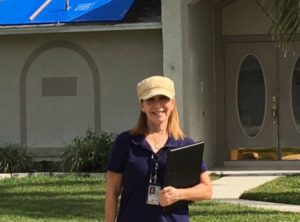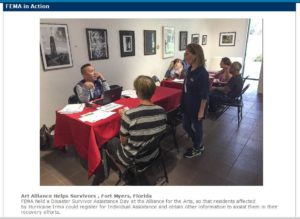When Hurricane Sandy hit in 2012 I was thousands of miles away in Europe with my family on a riverboat floating on the Danube somewhere between Budapest and Passau fixed to the television screen watching New York’s Rockaway Beach (the place where we were all born and raised) being bombarded with monsoon-like waves and wind.
Ten days later I landed at LAX. Then as a FEMA Reservist working my first deployment I was on the next plane out for New York. I can’t express the anguish in my heart, the trepidation I was experiencing in those very, long hours before I touched down at LaGuardia, before I saw it all for myself. I knew it wouldn’t be good. And it wasn’t.
I spent the next six weeks shuttling in the car between the city and Long Beach, where I was assigned. At night before I would head back, I would take the drive down Central Ave, loop around past my old house — that’s no longer there — to the beach, then just ride that long stretch of Beach Channel Drive all the while staring vacantly out the window, feeling the only thing I could: devastated.
The beginning days were the hardest. They’re always the hardest as people come to grips with their new reality. It’s like a fog lingering, but lifting just enough to see the river of water inside their house, the pots and pans and toys and bits of furniture floating about as if looking for a life preserver to rescue them. Nothing makes this right. When tragedy hits we’ll all on the same playing field. It’s one person in need and one person reaching out to help.
I’m always blown away by the transformation that takes place during these times. People become people. Their humanity is luminous. I’ve witnessed this repeatedly and without fail in my years working for FEMA. Seeing that glimmer of gratitude on survivors’ faces when being handed cans of food, blankets, water, clothing. Or when you show up at a shelter where auditoriums are filled to the brim with cots and crying babies and tell mothers and fathers a check is on the way. Just by being there, hope finds its way back.
You know when you think about it hope is such a small word. But in the FEMA world, it’s the glue that holds it all together.
Over the years I’ve seen a lot of America I wouldn’t normally. And from time to time, in between the long hours going from door-to-door, listening to survivors, seeing the damage, ensuring their environment is safe, registering them, getting them to a local food pantry, anything and everything it takes to survive a disaster, I write about it.
I write about it because I don’t want to forget all the wonderful people I meet along the way. I don’t want to forget their unbelievable stories, their bravery in the face of what would make some of us crumble. And most of all I don’t want to forget their humility.
Two years ago working Louisiana after record-breaking flooding took over most of the state, I found myself on the front porch of a house that from the street appeared abandoned. The yard was like a swamp with overgrowth clinging to the entire exterior and not a sign of life anywhere. Someone else might have passed this house by and not bothered to check. But unfortunately, after seeing all that I’ve seen, I was not at all surprised when the old man came to the door. I can’t describe the condition of his home. As Reservists, for safety reasons, we’re not permitted to go inside. But my partner and I didn’t need to. From the threshold we could see and smell the mold growing along the ceiling and walls. We could see the piles of damp clothes spread out in every corner. We could hear the despair in his voice because he had no family to turn to. Within forty-five minutes we had registered him for financial assistance. We had arranged for temporary housing, located a neighbor to drive him. Made sure social services were available to him and armed him with all the telephone numbers and referrals he would need to take that next step.
You know throughout this entire process not once did this kindly old gentleman utter a complaint about his situation when it was so obvious he had everything to complain about. Instead, he stood there in this humble pose and thanked us over and over. That is the image I took away. This man living in the most deplorable of conditions, smiling and thanking me when deep in my heart I was the one thanking him.
I realize not everyone feels that way about FEMA. Some folks don’t get that warm and fuzzy glow. I remember right after I’d published my first book I was in New Jersey speaking at a book club. Naturally, everyone was curious with questions and eager to discuss the characters and storylines. It isn’t every day a book club has the author right there to get into the nitty-gritty of things. Anyway, somehow it was brought to light that I wasn’t just a writer, I double-dutied as a FEMA Reservist. It was as if someone had just dropped a bomb because one of the women stood up and gave me a verbal lashing that I’ll never forget. It seems her daughter didn’t fare well during Hurricane Sandy and unfortunately laid that blame on FEMA’s doorstep. And I being the face of FEMA was equally to blame.
Forget that it put a kibosh in the evening. I’m a big girl. Getting the finger, being called all sorts of names is nothing new. I can’t explain to people, especially those who don’t want to hear, that FEMA’s job isn’t to make people whole but to offer a leg up. A hand of assistance.
And to some … that’s everything.
Not everyone can say they love what they do. Not everyone gets the opportunity to be part of something bigger themselves on a somewhat regular basis. And I only know that I’m given the tools to make a difference and when I deploy, when I knock on someone’s door, I hope to God I do.







Your words couldn’t have been better said, as a fellow Reservist and native New Yorker, I too was there and witnessed all that you mentioned and felt the same way. Now, my island, Puerto Rico has been hit very badly, words cannot describe the devastation, as I knocked on doors canvassing the neighborhoods, providing goods for basic necessities, showing empathy, many just needed someone to listen despite of their need. It fills my heart with warmth and satisfaction, knowing you’ve made a difference in someone’s life. So, my dear amiga, we were put on this mission, because someone up there, knows our heart.
Laura, we both know the importance of walking away from each and every disaster with the feeling that we’ve helped “at least” one person. That’s the goal. Always the goal. And finding you in the crowd was the cherry.
Couldn’t have been better said. You nailed it on why we do what we do!!
Thanks Homer! I’m glad you enjoyed the essay and appreciate the feedback. I’m thrilled to be a part of such as terrific conglomeration of people. And that includes you!